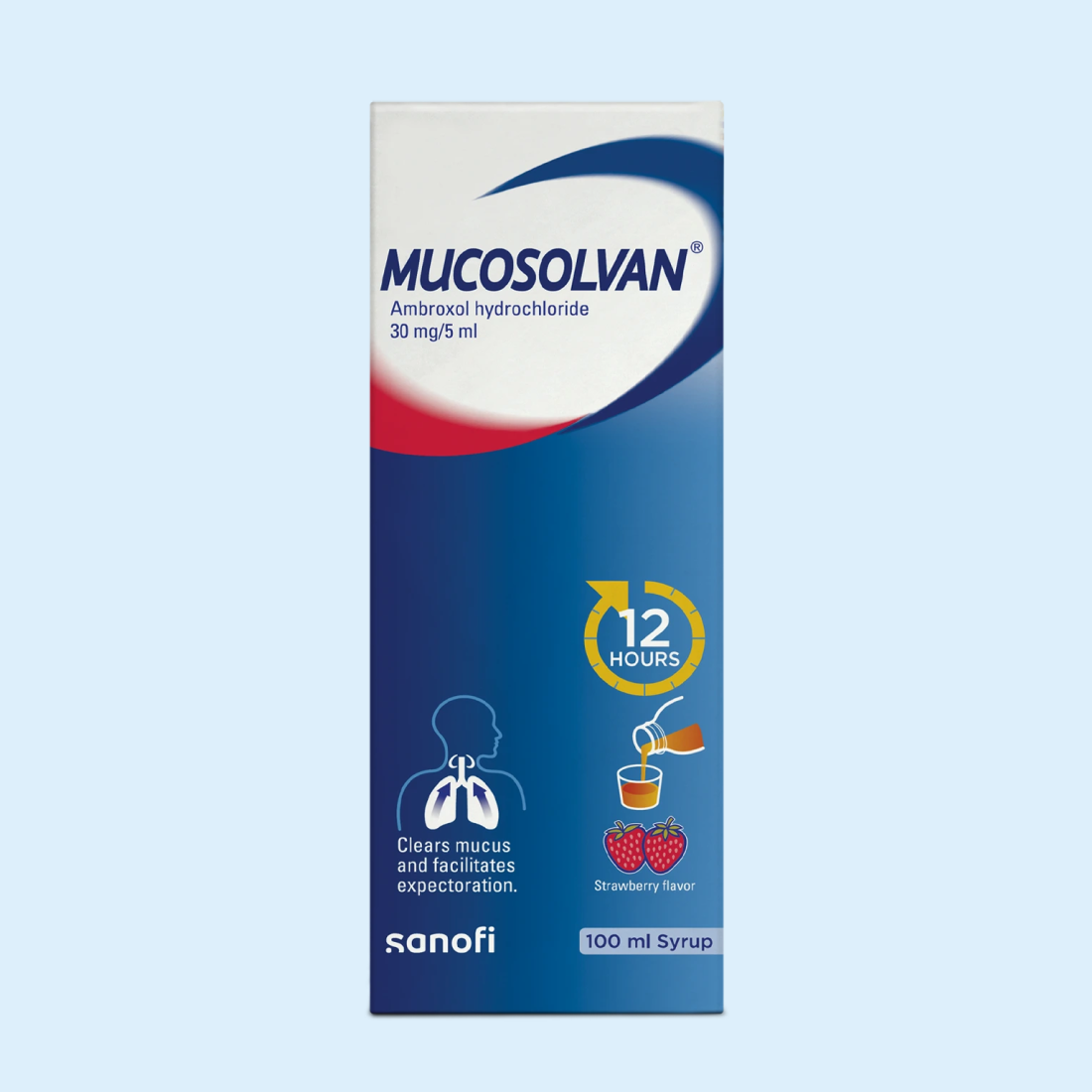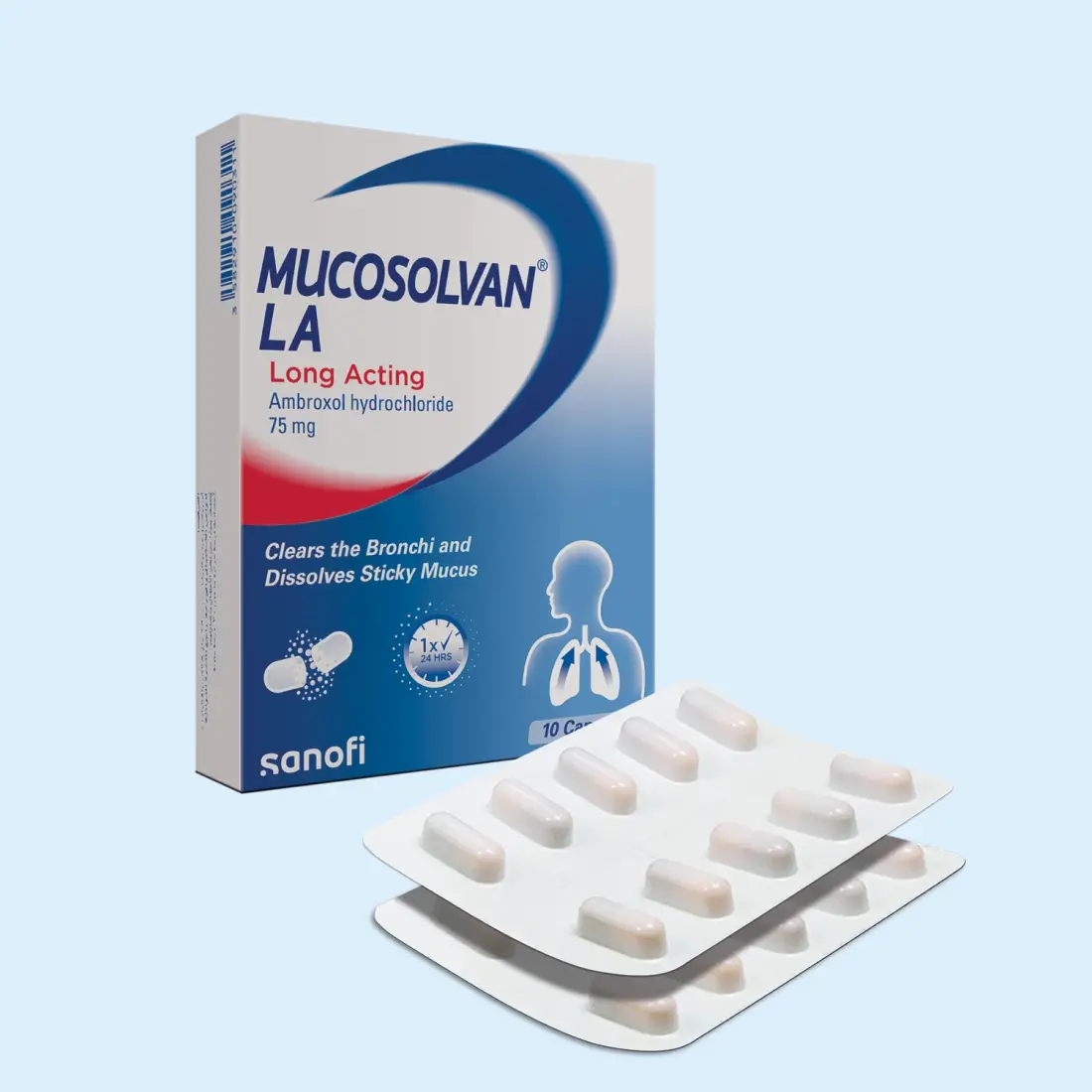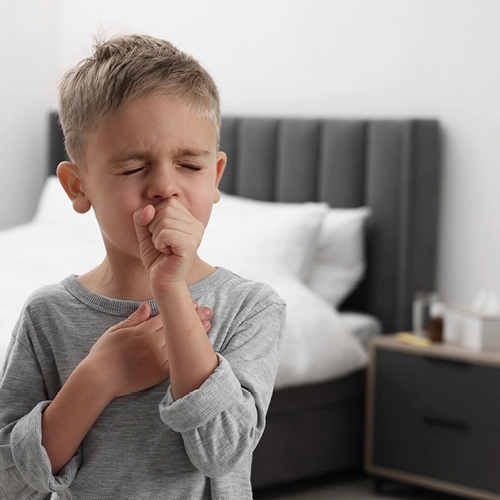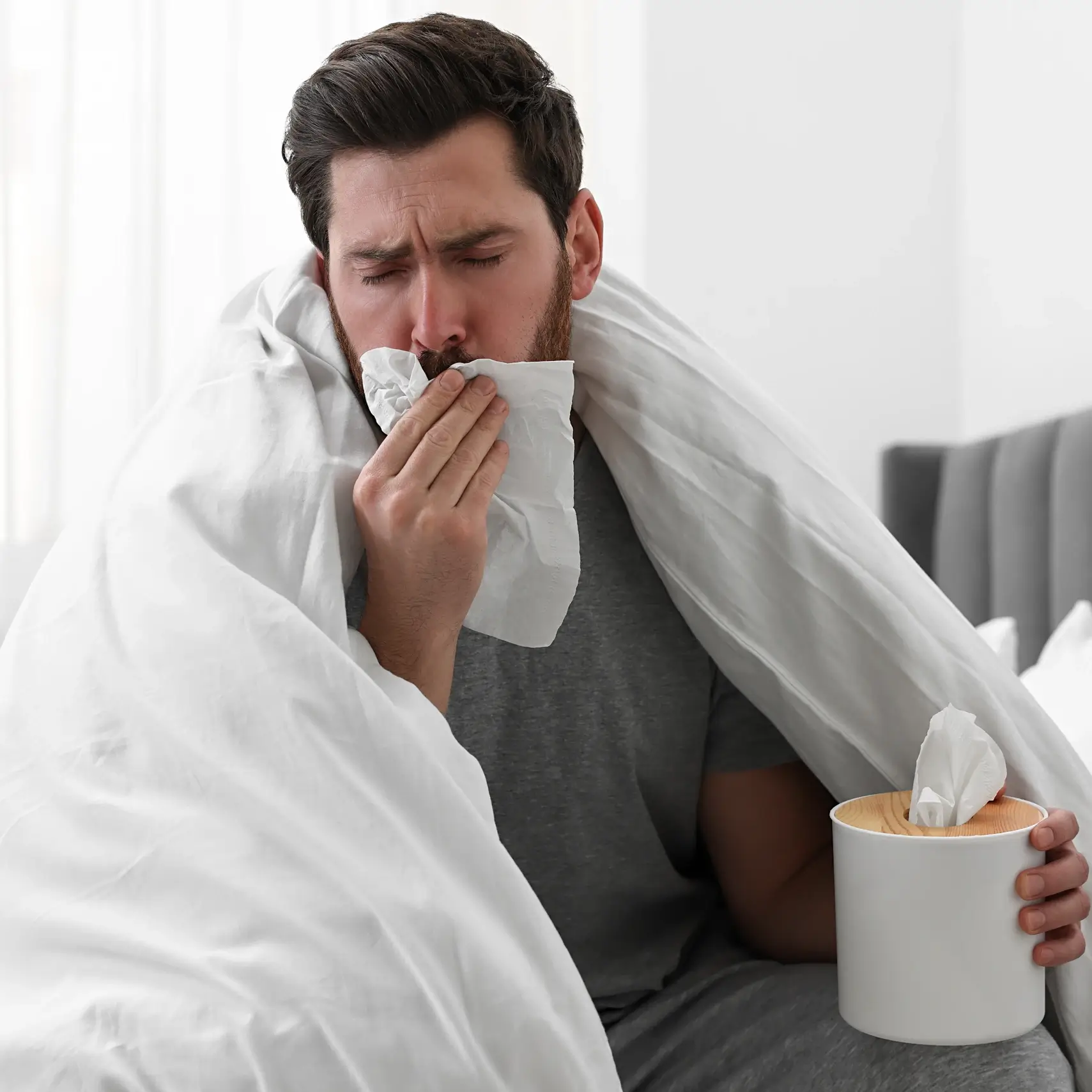-2.webp)
Acute vs. Chronic: What is considered a chronic cough in adults and kids?
Generally speaking, a cough can be acute, subacute or chronic 3. In adults, an acute cough usually goes away on its own, and does not last longer than 3 weeks 1, 2, 11. Acute coughs are usually caused by a respiratory infection 1.
A cough is considered chronic if it persists for more than 8 weeks in adults 11, 3, 4.
A cough is considered chronic in children if it lasts more than 4 weeks 11. An acute cough in children doesn’t usually last longer than 2 weeks, and it is often just a symptom of a respiratory infection 3.
What causes chronic cough in adults?
Below are some of the more common causes of chronic cough in adults 13:
- Asthma
- Chronic ear infection
- Bronchitis
- COPD
- Diffuse parenchymal lung diseases (DPLD)
- Chronic rhinitis (allergic, or otherwise)
- Chronic diseases of larynx and pharynx
- Tuberculosis
- Lung tumors
- Chronic idiopathic cough
- Chronic refractory cough
Chronic cough: What are the red flags?
‘Red flags’ are symptoms that suggest you need to see another specialist as soon as possible, or that you require emergency care 13. In the case of a chronic cough, you should get immediate medical attention if the following apply to you 13:
- Experiencing hemoptysis (eg. Pulmonary embolism)
- Experiencing dyspnoea when resting
- Experiencing hoarseness
- You have suspected pneumonia
- You have suspected tuberculosis
- You have of more than 38.5 C
- Experiencing cyanosis
- Evidence of heart failure
- You are a heavy smoker
What causes a chronic cough in kids?
There are many potential reasons that could cause your child’s cough. Speak to a doctor to get an accurate diagnosis. To determine the cause of your child’s cough, a physician will consider several things, such as 3, 11, 13:
- the sound of your child’s cough
- whether it’s a chronic dry cough or a productive one
- other symptoms your child may have
- the results of tests such as spirometry (a breathing test to measure lung function) and chest x-ray 4
Post-infectious cough (respiratory infections)
A chronic post-infectious cough is usually dry with no wheezing 6, 3. It’s caused by a respiratory virus, such as influenza (the flu), or a bacterium like Bordetella pertussis 6. A post-infectious cough usually goes away on its own 6. In many infections, the persistent cough can last for months and it’s often the last symptom to disappear 6.
Asthma
Asthma is a major cause of chronic cough in children. The condition causes the airways to become inflamed 11,3.
According to the American College of Allergy, Asthma, and Immunology, common symptoms of asthma in kids include 7:
- chronic cough at night
- a wheezing or whistling sound when breathing
- trouble breathing or fast breathing
- tightness in the chest
- shortness of breath during physical activity 3
If your child experiences these symptoms recurrently, you should speak to a specialist 7.
How to treat a chronic cough in adults
If you have chronic cough, it’s important that you contact a doctor for advice 4. Anyone who has had a cough that’s lasted for over 3 weeks should consult a physician 2.
There are several possible causes that may explain your cough. Your treatment and outlook depend on the underlying cause 4. A physician will perform a series of tests and ask several questions in order to find out what it is 4. They may recommend non-prescription remedies and self-care. They may also refer you to a specialist 2.
Home remedies and self-care
There are several home remedies and healthy lifestyle changes that can relieve chronic cough in some people 2. These include:
- humidifying the air in your room
- staying hydrated
- taking honey either on its own or with hot water to soothe the cough
- quitting smoking
- avoiding irritants and other substances that may trigger the cough
How to treat a chronic cough in kids
If you think your child has chronic cough, you should make an appointment with a paediatrician. The treatment will depend on the underlying cause, which will be determined by your child’s diagnosis 8.
In the meantime, in addition to those listed above, there are various home cough remedies that can alleviate a cough in children. For example, mucolytic agents, such mucolytic agent is ambroxol (Mucosolvan) can:
- relieve cough
- soothe the throat
- loosen the mucus from the lungs
- help clear the airways.
Ambroxol is best suited for a wet, productive cough. Bromhexine (Bisolvon Mucolitico) is another well-established compound that is known to relieve productive cough.
For a dry cough in kids, you can try a natural ingredients-based cough syrup, such as Bisolherbal. The latter uses 3 ingredients to soothe coughs: plantain, marshmallow, thyme.
Always check whether a non-prescription remedy is suitable for your child’s age 2. A doctor or pharmacist will be able to help and advise you.
FAQs
- asthma
- GERD
- upper airway cough syndrome (post-nasal drip)
The most common causes of chronic cough in adults (a cough that lasts for 8 weeks or more) are:
A new and continuous cough is one of the common symptoms of COVID-19 9. While most people recover from the condition, for some people, symptoms can linger for months. This is called “post-covid condition”, or long covid. Some people report a chronic cough and sore throat as part of their symptoms of this 9.
Treating a chronic cough at night depends on the root cause of your cough 10. For example, if the cause is smoking, quitting smoking can help relieve the nocturnal cough 10. If it’s an allergic cause, avoiding the environmental factors that trigger your allergy can also relieve your cough 10. For a postinfectious cough, an antitussive like dextromethorphan (Bisolvon) may provide relief 10. While rare, it’s important to be aware that a chronic cough that worsens at night may also be a symptom of a serious condition such as heart-failure 12. If you are experiencing this, you should seek medical attention.

1. Mahashur A. Chronic dry cough: Diagnostic and management approaches. Lung India. 2015 Jan-Feb;32(1):44-9. doi: 10.4103/0970-2113.148450. PMID: 25624596; PMCID: PMC4298918.
2. Glashan, E., Mahmoud, S.H. (2019). Cough. In: Mahmoud, S. (eds) Patient Assessment in Clinical Pharmacy. Springer, Cham. https://doi.org/10.1007/978-3-030-11775-7_5
3. Ioan I, Poussel M, Coutier L, Plevkova J, Poliacek I, Bolser DC, Davenport PW, Derelle J, Hanacek J, Tatar M, Marchal F, Schweitzer C, Fontana G, Varechova S. What is chronic cough in children? Front Physiol. 2014 Aug 28;5:322. doi: 10.3389/fphys.2014.00322. PMID: 25221517; PMCID: PMC4148026.
4. Alhajjaj MS, Bajaj P. Chronic Cough. [Updated 2022 May 8]. In: StatPearls [Internet]. Treasure Island (FL): StatPearls Publishing; 2022 Jan-. Available from: https://www.ncbi.nlm.nih.gov/books/NBK430791/
5. Children with Reflux (GERD) - Gastrointestinal Society, accesssed 14/10/2022, available at https://badgut.org/information-centre/a-z-digestive-topics/children-with-reflux/
6. Kantar A. Phenotypic presentation of chronic cough in children. J Thorac Dis. 2017 Apr;9(4):907-913. doi: 10.21037/jtd.2017.03.53. PMID: 28523136; PMCID: PMC5418253.
7. Asthma in Children: Signs, Symptoms & Treatment | ACAAI Public Website, accessed 13/10/2022, availeble at https://acaai.org/asthma/asthma-101/who-gets-asthma/children/
8. Weinberger M and Hurvitz M. Diagnosis and management of chronic cough: similarities and differences between children and adults [version 1; peer review: 2 approved] F1000Research 2020, 9(Faculty Rev):757 https://doi.org/10.12688/f1000research.25468.1
9. Goërtz YMJ, Van Herck M, Delbressine JM, et al. Persistent symptoms 3 months after a SARS-CoV-2 infection: the post-COVID-19 syndrome?. ERJ Open Res 2020; 6: 00542-2020 [https://doi.org/10.1183/23120541.00542-2020].
10. Singh DP, Jamil RT, Mahajan K. Nocturnal Cough. [Updated 2022 Jan 25]. In: StatPearls [Internet]. Treasure Island (FL): StatPearls Publishing; 2022 Jan-. Available from: https://www.ncbi.nlm.nih.gov/books/NBK532273/
11. ERS guidelines on the diagnosis and treatment of chronic cough in adults and children. Morice, H. et al. 2020. European Respiratory Journal 55: 1901136; DOI: 10.1183/13993003.01136-2019
12. Symptoms. Heart failure. NHS. 2022. https://www.nhs.uk/conditions/heart-failure/symptoms/
13. Kardos, P. et al. German Respiratory Society guidelines for diagnosis and treatment of adults suffering from acute, subacute and chronic cough. Respiratory Medicine 170 (2020) 105939
a. Mucosolvan Syrup leaflet last revised in July 2022.
b. Mucosolvan 75mg capsules leaflet last revised in July 2022.
%20(1).webp)





%20(1)%20(1).webp)



%20(1).webp)